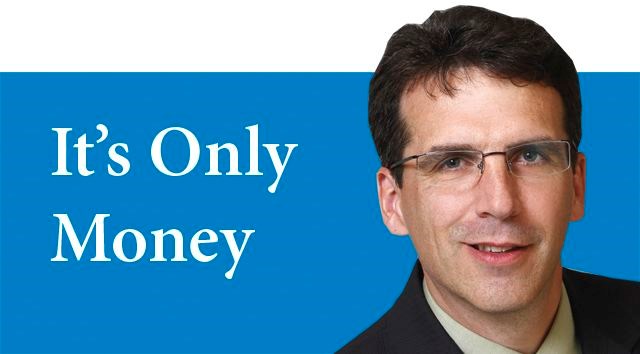A commercial banker is a steel bearing, managing the friction between two powerful moving forces - the bank, with all its structure and solid-rock risk management rigidity - and the client, on the move, enterprising and seeking capital.
Invariably up against a ridiculous timeframe, with opportunity hanging in the balance, the anxious entrepreneur approaches the banker for funds required to complete a business purchase, or an equipment upgrade, or a shareholder buyout, or a divorce loan (yes, we do those) or - among the more difficult financing manoeuvres - a construction project.
The project loan is a Swiss watch made of unset concrete. Its many moving parts and the fact that cost overruns sometimes exceed the ability of shareholders to complete the project, can leave half-completed money-spent monstrosities for all to behold.
Even Jesus had words about construction projects in one of his parables, when he remarked: "For which of you, intending to build a tower, sitteth not down first, and counteth the cost, whether he have sufficient to finish it? (Luke 14:28).
So, as a nervous, youngish credit risk manager, adjudicating one of these, I was more about brakes than breaks. If there be friction in the process, so be it. Better that than biblically-poor planning. And this attitude found me in the boardroom one day, in a rare face-to-face meeting with our client and his legendary, seasoned lawyer. Most of my days were spent locked away in a corner office. I was a bit nervous.
The lawyer was deliberately intimidating. He didn't like the wording on one of our bank forms, offended that I would even ask for that particular piece of security at all, a risk-protection measure I insisted on in order to protect my employer.
My boss, who lived in another city, was on vacation - so I had no back-up. It was all on me. It was a very large loan at the upper end of my authority.
The client, who evidently had not been sleeping, was there, dripping with financial angst, a mixture of hope and resentment evident in his face.
I endured the stern lecture from the lawyer about us being unrelenting, not willing to take risks, when it occurred to me that we were simply speaking different languages.
It was a six-month project and the bank stood to earn maybe two per cent after costs - and that is if everything went well. But our proposed extension of the loan meant that the entire balance of capital at risk was ours.
"Two per cent" I repeated. "Yes, we are very large and profitable, but that is because we make a whole bunch of these two per cent deals, and usually get paid back. We have very different amounts to gain and lose here." (Hence, the language barrier).
I held ground and then I held my breath. The lawyer relented. The loan advanced. The project started. I lost sleep. It was still weighing on me until the day it completed. The client made a very handsome profit. The lawyer got paid. The commercial banker won awards. I still had a job.
The right level of access to capital is an essential function of our economy. If money is too easy, we get asset bubbles, inflation and volatility. If access is too tight, everything seizes up, businesses stop expanding, hiring freezes, life sucks.
Economists actually measure this stuff in an attempt to get a read on the growth, or shrinkage of access to capital, because all of this has such a profound impact on our overall economy, on stock markets, real estate values and pretty much everything.
From today's Bank of Canada website we read about the most recent survey of senior loan officers in Canada:
"Survey results suggest that overall business-lending conditions were essentially unchanged during the first quarter of 2017.
"This is the third consecutive quarter of unchanged lending conditions.
"Although overall non-price conditions were unchanged, there was some easing in British Columbia, targeted at both small-business and commercial borrowers. This was driven by an improved economic outlook, increased banking competition and changes to the business strategies of banks."
Interest rates, the subject of a future article, also have a very significant impact on access to capital and, thus, asset values.
Overall, our system in Canada, imperfect as it is, works very well.
As noted by the Canadian Bankers Association:
"During the 2007/08 global financial crisis, unlike banks in many other countries, no Canadian banks were bailed out or in danger of failing. The World Economic Forum has ranked Canada's banks as among the soundest in the world for the past 10 years - a fact that highlights that banks in Canada are well-capitalized, well-managed and well-regulated."
Mark Ryan is an investment advisor with RBC Dominion Securities Inc. (Member-Canadian Investor Protection Fund). This article is for information purposes only. Please consult with a professional advisor before taking any action based on information in this article. Mark can be reached at [email protected].



